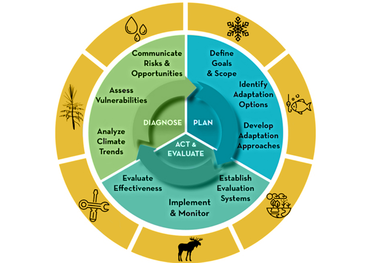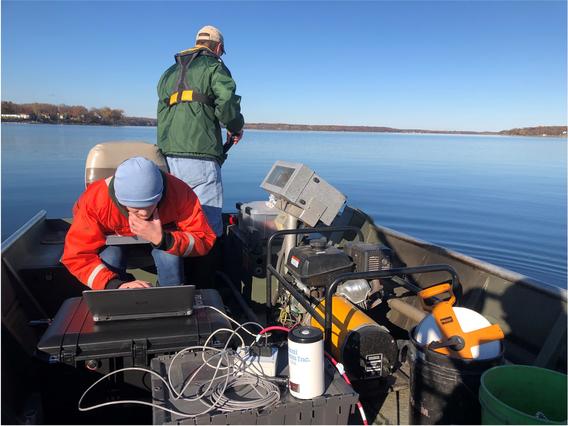
The Midwest CASC supports and delivers science that helps fish, wildlife, water, land and people in the Midwest adapt to a changing climate.
The research priorities we support are shaped by our 5-Year Science Agenda. This agenda was established according to input from resource managers and scientists throughout the region, and is responsive to five key management challenges:
- Heavy precipitation events and drought. Heavy precipitation events, flooding, and drought alter the condition, structure, services, and management of natural resources.
- Loss of winter. Warming winters, altered snow patterns, and increased variability affect fish and wildlife populations, habitat management, and nature-based recreation.
- Altered hydrological regimes. Changes in temperature, flows, and connectivity alter high-value fish populations, at-risk aquatic organisms, and culturally important resources.
- Novel terrestrial landscapes. Shifts in vegetation and human responses to climate change alter the suitability of the landscape for priority and at-risk wildlife populations.
- Barriers to and opportunities for adaptation. Climate change alters the feasibility of management goals and suitability of management tools. Adaptation strategies can also provide unexpected opportunities or co-benefits for diverse stakeholders. Meaningful engagement between scientists, resource managers, and the public is necessary to identify future goals and overcome barriers to change.
View the Midwest CASC's full list of science priorities related to these management challenges here.
Partnerships and Co-Production
As a partnership-driven program, the Midwest CASC emphasizes co-production of knowledge. Co-production is an approach in which researchers, practitioners, and the public work together, sharing responsibility from the beginning to the end of the project, including the visioning, implementation, and generation of knowledge.

